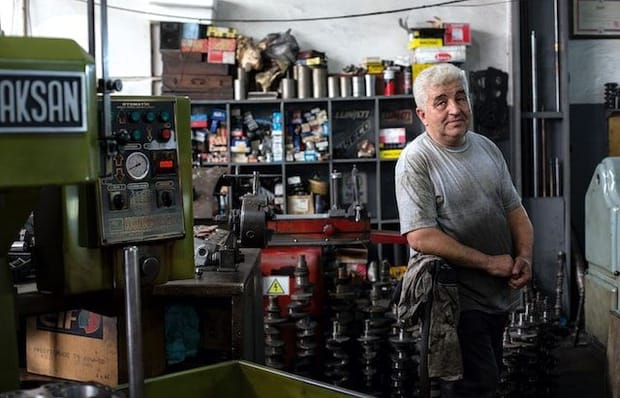Commentators were gloomy about this year's Autumn Budget during its build-up, given worse-than-expected growth figures and continued uncertainty around the Brexit negotiations.
Now that we've had time to reflect on Chancellor Philip Hammond's announcements, was the doom and gloom justified or was there good news for small businesses?
Here's everything you need to know about the 2017 Autumn Budget, in plain English.
Business rates
Companies struggling with the burden of business rates received some good news in the autumn budget, with a change in measurement meaning that future rate rises will be lower than expected.
It all comes down to a change in the measure of inflation business rates are tied to. At the moment, business rates are pegged to the Retail Price Index (RPI). From April 2018, they'll use the Consumer Price Index (CPI), which is usually lower than the RPI.
We weren't expecting the government to switch to CPI until 2020, but during the budget it was announced that this change would move forward to 2018.
The end result: a rise in business rates that isn't quite so painful.
Also, pubs that are eligible for the £1000 business rates relief will see this extended for a further year, until March 2019.
Wages
As expected, the national living wage and national minimum wage will increase in April. Here are the changes per age group:
Over 25s: £7.83 (up from £7.50)
21-24: £7.38 (up from £7.05)
18-20: £5.90 (up from £5.60)
16-17: £4.20 (up from £4.05)
Apprentices: £3.70 (up from £3.50)
Investment and infrastructure
The chancellor's focus on this budget was investment in high-tech industries and emerging technologies like electric and self-driving cars, artifical intelligence and financial technology.
Elsewhere, £1.7bn was funneled into the new Transforming Cities Fund which local authorities can use to help fund transport projects.
£2.5 billion is going towards a new investment fund administered by the British Business Bank, which will finance growth in 'innovative firms'.
There will be more money for regions, too, including £5 million for the redevelopment of the Redcar Steelworks site, £330 million to update the Tyne & Wear Metro's rolling stock, and £30 million to improve mobile and digital connectivity on the TransPennine railway line.
Fuel duty and diesel cars
Fuel duty is frozen again, as it has been every year since 2010.
New diesel cars that don't meet environmental standards will be taxed a band higher than they otherwise would. This does not apply to new diesel vans, or existing diesel cars.
The Company Car tax diesel supplement will also be increased by a percentage point.
VAT threshold
Despite speculation in the press, the threshold at which small businesses have to register for VAT will remain at £85,000. The government will review this threshold in the coming months.
Wrap-Up
Overall, this budget didn't offer anything groundbreaking for small businesses. While the change in inflation measure for business rates will provide some relief for SMEs, increases in the minimum wage and the continued uncertainty around Brexit mean that the outlook for many businesses is mixed.
However, the tone of this budget was decidely business-friendly - and it's this atmosphere that's critical if small businesses are to succeed and thrive in the UK.







